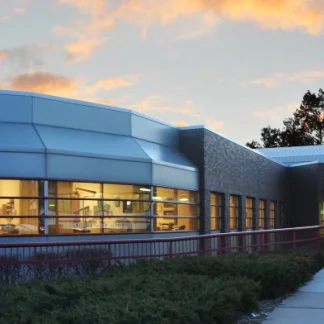Overcoming Addictions
Overcoming Addictions provides the best practices; evidence-based comprehensive ...
NorthPoint Health & Wellness Center sets a standard of excellence in providing culturally responsive, integrated, holistic primary health and social services that strengthens our community and the lives of the people we serve. We are leaders and partners in a shared vision of a healthy, environmentally safe, and economically stable, self-reliant community.
Contact us for more information: (612) 767-9153

Connect with NorthPoint Health and Wellness Center by calling their admissions team directly.
(612) 767-9153 Website Get DirectionsThe Joint Commission, formerly known as JCAHO, is a nonprofit organization that accredits rehab organizations and programs. Founded in 1951, the Joint Commision's mission is to improve the quality of patient care and demonstrating the quality of patient care.
Joint Commission Accreditation: Yes
Research clearly demonstrates that recovery is far more successful and sustainable when loved ones like family members participate in rehab and substance abuse treatment. Genetic factors may be at play when it comes to drug and alcohol addiction, as well as mental health issues. Family dynamics often play a critical role in addiction triggers, and if properly educated, family members can be a strong source of support when it comes to rehabilitation.
Group therapy is any therapeutic work that happens in a group (not one-on-one). There are a number of different group therapy modalities, including support groups, experiential therapy, psycho-education, and more. Group therapy involves treatment as well as processing interaction between group members.
In individual therapy, a patient meets one-on-one with a trained psychologist or counselor. Therapy is a pivotal part of effective substance abuse treatment, as it often covers root causes of addiction, including challenges faced by the patient in their social, family, and work/school life.
Group therapy is any therapeutic work that happens in a group (not one-on-one). There are a number of different group therapy modalities, including support groups, experiential therapy, psycho-education, and more. Group therapy involves treatment as well as processing interaction between group members.
In individual therapy, a patient meets one-on-one with a trained psychologist or counselor. Therapy is a pivotal part of effective substance abuse treatment, as it often covers root causes of addiction, including challenges faced by the patient in their social, family, and work/school life.
In individual therapy, a patient meets one-on-one with a trained psychologist or counselor. Therapy is a pivotal part of effective substance abuse treatment, as it often covers root causes of addiction, including challenges faced by the patient in their social, family, and work/school life.
Overcoming Addictions provides the best practices; evidence-based comprehensive ...
Al Anon is a private rehab located in Saint Louis Park, Minnesota. Al Anon speci...
ADAPT of Minnesota is a private rehab located in Minneapolis, Minnesota. ADAPT o...
Avivo is a non profit rehab located in Minneapolis, MN. Avivo have an outpatient...